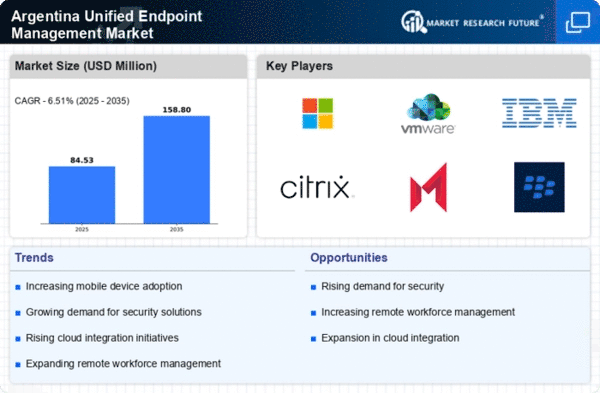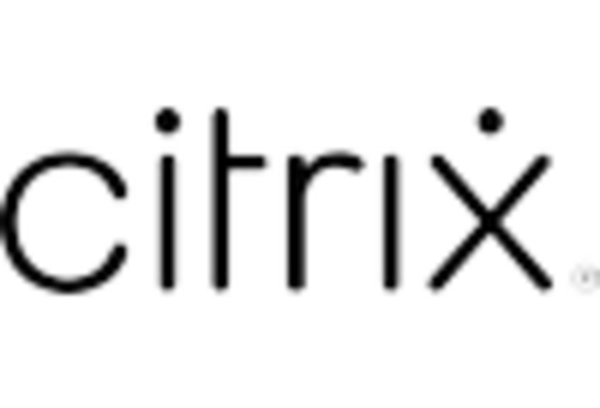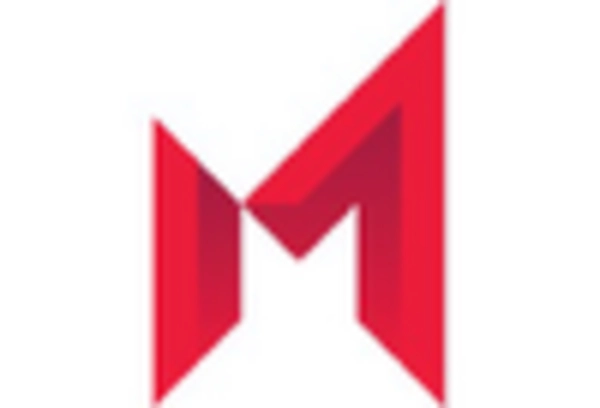Remote Work Trends
The shift towards remote work in Argentina has significantly influenced the unified endpoint-management market. As businesses adapt to flexible work arrangements, the need for effective management of diverse devices has become paramount. In 2025, it is projected that remote work will account for approximately 30% of the workforce in Argentina. This trend necessitates solutions that ensure secure access to corporate resources from various endpoints. Unified endpoint-management systems facilitate this by providing IT departments with the tools to manage, secure, and support remote devices efficiently, thereby enhancing productivity and security.
Growing Mobile Device Usage
The proliferation of mobile devices in Argentina is a significant driver for the unified endpoint-management market. With an estimated 80% of the population owning smartphones, businesses are increasingly challenged to manage a diverse array of devices. Unified endpoint-management solutions offer a streamlined approach to manage, secure, and monitor these devices, ensuring that corporate data remains protected. In 2025, it is anticipated that mobile device management will account for a substantial portion of endpoint management budgets, as organizations seek to enhance their mobile security posture and improve user experience.
Rising Cybersecurity Threats
The Argentina unified endpoint-management market is experiencing growth due to the increasing frequency and sophistication of cyber threats. Organizations are compelled to adopt comprehensive security measures to protect sensitive data and maintain operational integrity. In 2025, it is estimated that cybercrime could cost businesses globally over $10 trillion annually, prompting Argentine firms to invest in unified endpoint-management solutions. These solutions provide centralized control over devices, enabling real-time monitoring and threat detection. As a result, the demand for robust security features within endpoint management systems is likely to rise, driving market expansion.
Increased Demand for IT Efficiency
The Argentina unified endpoint-management market is also being propelled by the growing demand for IT efficiency. Organizations are under pressure to optimize their IT operations and reduce costs while maintaining high service levels. Unified endpoint-management solutions enable IT teams to automate routine tasks, streamline workflows, and enhance device management capabilities. By consolidating endpoint management into a single platform, businesses can reduce operational overhead and improve response times to security incidents. This focus on efficiency is likely to drive further adoption of unified endpoint-management solutions across various sectors in Argentina.
Regulatory Compliance Requirements
In Argentina, the unified endpoint-management market is being driven by stringent regulatory compliance requirements. Organizations are increasingly required to adhere to data protection laws, such as the Personal Data Protection Law, which mandates the safeguarding of personal information. Failure to comply can result in hefty fines, potentially reaching up to 4% of annual revenue. Consequently, businesses are investing in unified endpoint-management solutions to ensure compliance and mitigate risks associated with data breaches. These systems help organizations maintain proper data governance and security protocols, thereby fostering trust with customers and stakeholders.
















